Pepper cultivation is a significant component of agriculture in Nigeria, contributing to both domestic consumption and export markets. Nigeria boasts a wide array of pepper varieties, each with its unique attributes and agricultural significance. In this detailed exploration, we will delve into the diverse pepper varieties cultivated in Nigerian agriculture, highlighting their characteristics, cultivation requirements, and economic importance.
Bell Pepper (Capsicum annuum):
Bell pepper, commonly referred to as sweet pepper or tatashe, is a widely grown plant in Nigeria. It stands out for its thick meat, crisp texture, and sweet flavor. Green, red, and yellow are just a few of the colors that bell peppers come in. They are commonly grown in both open fields and protected environments, such as greenhouses. Bell peppers need well-draining soil, enough sunshine, and routine watering. This adaptable type is highly sought after on the market and is used raw or in salads, stir-fries, and soups.
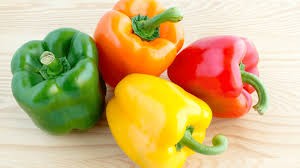
Chili Pepper (Capsicum frutescens):
Bawa, another name for the chili pepper, is a popular and economically important variety in Nigerian agriculture. It is renowned for its peppery and spicy flavor, which adds heat to numerous recipes. From moderate to very intense, chili peppers come in a variety of forms, sizes, and heat levels. They normally grow in well-drained soil and do best in warm areas. The cultivation of chili peppers requires routine irrigation and protection from heavy rain. These peppers are commonly utilized in regional cooking, the creation of spices, and the creation of sauces and condiments that contain peppers.
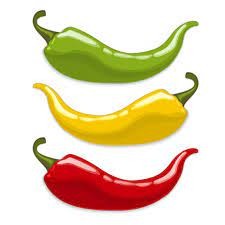
Scotch Bonnet Pepper (Capsicum chinense):
Scotch Bonnet pepper, locally known as Ata Rodo, is a highly sought-after variety in Nigeria. It is characterized by its distinctive round shape and intense heat. Scotch Bonnet peppers range in color from bright red to yellow. Cultivating Scotch Bonnet peppers requires well-drained soil, ample sunlight, and warm temperatures. These peppers have significant culinary value and are a key ingredient in traditional Nigerian dishes such as jollof rice, soups, stews, and sauces. They are also exported and play a role in the international spice market.
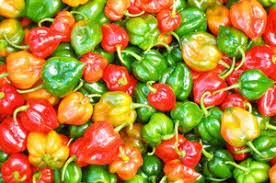
Habanero Pepper (Capsicum chinense):
Habanero pepper, or Ose Oyibo, is another popular and fiery variety cultivated in Nigeria. It shares similarities with the Scotch Bonnet pepper in terms of shape, heat level, and culinary uses. Habanero peppers come in vibrant colors such as orange, red, and yellow. They thrive in warm climates and require well-drained soil with regular watering. Habanero peppers are in high demand for local consumption, regional trade, and export purposes. They are used in various dishes, including soups, stews, sauces, and traditional spicy snacks.
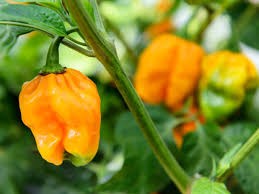
Cayenne Pepper (Capsicum annuum):
Cayenne pepper, known as Ata Gborigi, is a moderately hot variety cultivated in Nigerian agriculture. It is characterized by its slender shape and ranges in color from green to red. Cayenne peppers are grown in well-drained soil with adequate sunlight and moisture. They are often dried and ground into a fine powder for use in spice blends, marinades, and condiments. Cayenne pepper has both domestic and export demand, with applications in culinary preparations, herbal remedies, and the pharmaceutical industry.
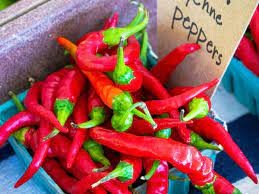
Conclusion:
Pepper cultivation plays a vital role in Nigerian agriculture, offering a diverse range of varieties with distinct flavors, heat levels, and culinary applications. Bell peppers, chili peppers, Scotch Bonnet peppers, Habanero peppers, and Cayenne peppers are among the key varieties cultivated in Nigeria. They contribute to local consumption, regional trade, and export markets, providing income opportunities for farmers and contributing to the country’s agricultural economy. Understanding the characteristics and cultivation requirements of these pepper varieties empowers farmers to make informed decisions, optimize yields, and meet the diverse demands of consumers both within Nigeria and beyond.


